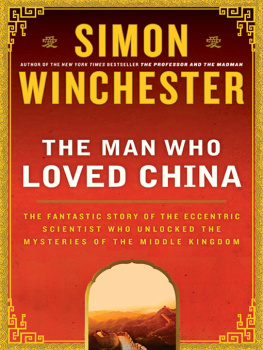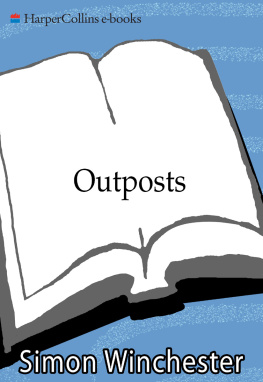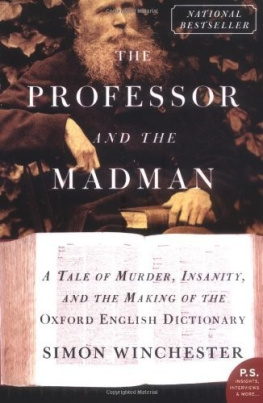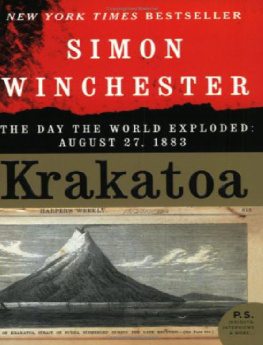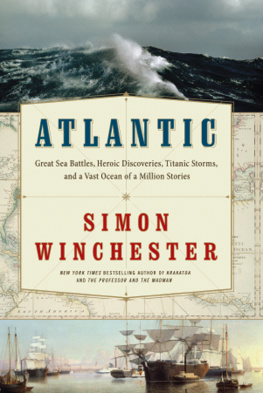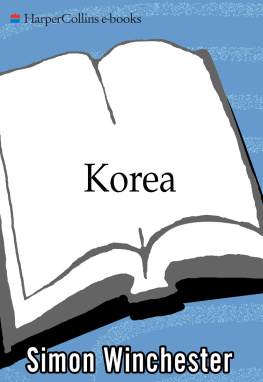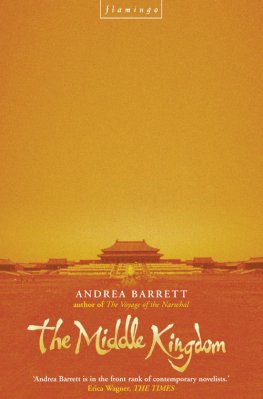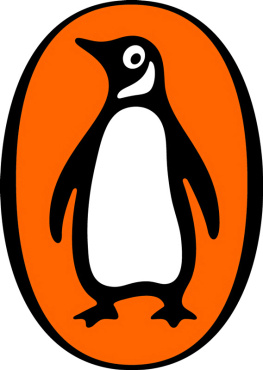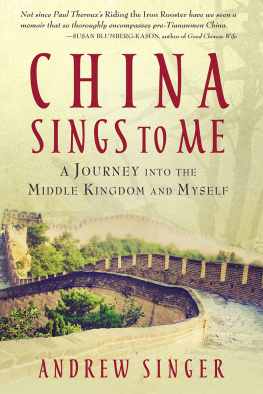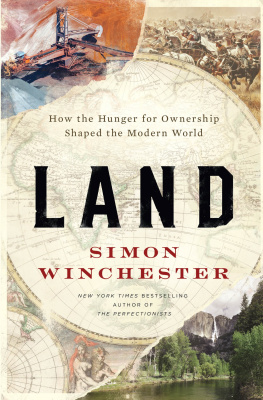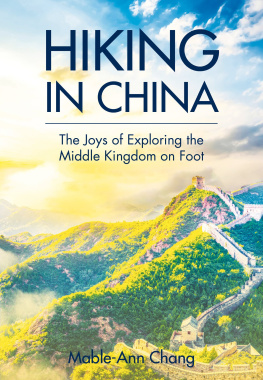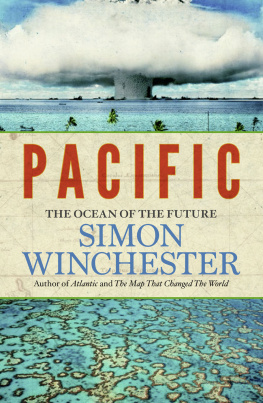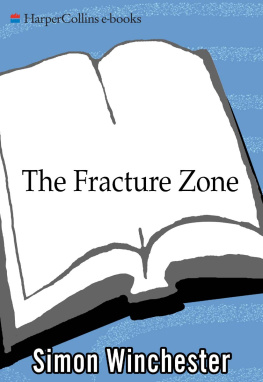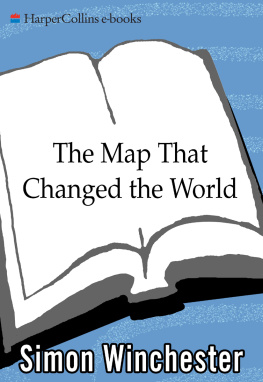Simon Winchester - The Man Who Loved China: The Fantastic Story of the Eccentric Scientist Who Unlocked the Mysteries of the Middle Kingdom
Here you can read online Simon Winchester - The Man Who Loved China: The Fantastic Story of the Eccentric Scientist Who Unlocked the Mysteries of the Middle Kingdom full text of the book (entire story) in english for free. Download pdf and epub, get meaning, cover and reviews about this ebook. year: 2008, publisher: HaperCollins, genre: Detective and thriller. Description of the work, (preface) as well as reviews are available. Best literature library LitArk.com created for fans of good reading and offers a wide selection of genres:
Romance novel
Science fiction
Adventure
Detective
Science
History
Home and family
Prose
Art
Politics
Computer
Non-fiction
Religion
Business
Children
Humor
Choose a favorite category and find really read worthwhile books. Enjoy immersion in the world of imagination, feel the emotions of the characters or learn something new for yourself, make an fascinating discovery.
- Book:The Man Who Loved China: The Fantastic Story of the Eccentric Scientist Who Unlocked the Mysteries of the Middle Kingdom
- Author:
- Publisher:HaperCollins
- Genre:
- Year:2008
- Rating:3 / 5
- Favourites:Add to favourites
- Your mark:
- 60
- 1
- 2
- 3
- 4
- 5
The Man Who Loved China: The Fantastic Story of the Eccentric Scientist Who Unlocked the Mysteries of the Middle Kingdom: summary, description and annotation
We offer to read an annotation, description, summary or preface (depends on what the author of the book "The Man Who Loved China: The Fantastic Story of the Eccentric Scientist Who Unlocked the Mysteries of the Middle Kingdom" wrote himself). If you haven't found the necessary information about the book — write in the comments, we will try to find it.
Simon Winchester: author's other books
Who wrote The Man Who Loved China: The Fantastic Story of the Eccentric Scientist Who Unlocked the Mysteries of the Middle Kingdom? Find out the surname, the name of the author of the book and a list of all author's works by series.
The Man Who Loved China: The Fantastic Story of the Eccentric Scientist Who Unlocked the Mysteries of the Middle Kingdom — read online for free the complete book (whole text) full work
Below is the text of the book, divided by pages. System saving the place of the last page read, allows you to conveniently read the book "The Man Who Loved China: The Fantastic Story of the Eccentric Scientist Who Unlocked the Mysteries of the Middle Kingdom" online for free, without having to search again every time where you left off. Put a bookmark, and you can go to the page where you finished reading at any time.
Font size:
Interval:
Bookmark:
The Fantastic Story of the Eccentric Scientist Who Unlocked the Mysteries of the Middle Kingdom

For Setsuko

Throughout Science and Civilisation in China Joseph Needham employed the symbols + and to denote, respectively, dates after and before the birth of Christ, or during or before the Christian era. In this book, including all relevant direct quotations from Needhams writings, AD and BC are used instead, for convenience.
The Wade-Giles system of transliteration was in widespread use in China during the time of Joseph Needhams travels, and he applied it (together with his own somewhat eccentric modifications) in the writing of all of his books. However, this system, which gave us words and names like Peking, Mao Tse-tung, and Chungking, has now been officially and comprehensively replaced in modern China by the pinyin system, which offers transliterated forms of words that the linguistic authorities insist are closer to the actual native pronunciation of standard ChineseBeijing, Mao Zedong, Chongqing. To avoid confusion I have opted to use pinyin throughout the book, except in a very small number of cases when it seemed proper to be pedantically precise in offering up a contemporaneous quotation.
On Flying and Aerodynamics
Someone asked the Master [Ge Hong] about the principles of mounting to dangerous heights and travelling into the vast inane. The Master said: Some have made flying cars with wood from the inner part of a jujube tree, using ox or leather straps fastened to returning blades so as to set the machine in motion.
FROM THE BAO PU ZI, AD 320
From Science and Civilisation in China , Volume IV, Part 2
T he battered old Douglas C-47 Skytrain of the China National Aviation Corporation, its chocolate brown fuselage battle-scarred with bullet holes and dents, shuddered its way down through the rain clouds, the pilot following the slow bends of the Yangzi River until he had the sand-spit landing field in sight in front of him and the cliffs of Chinas capital city to his left.
The pilot lost altitude fast in case any Japanese fighters were lurking behind the thunderheads, fixed his position by the batteries of antiaircraft guns guarding the runway approach, and lined up between the rows of red-and-white-painted oil drums that had been set down as markers. He trimmed his flaps, throttled back his two engines, grimaced as the plane lurched briefly in a sudden crosswind that was typical for this time of year, and then finally bumped heavily down onto the old riverbed that served as the nations principal aerodrome. He braked; turned back and headed in past squadrons of parked American and Chinese fighter planes, toward the glitter of Quonset huts that served as terminal buildings; then slowed and taxied to a stop.
A lone British army sergeant was waiting beside the baggage trailer. As soon as the propellers stopped turning, and once the rear door of the aircraft was flung open and a pair of mechanics rolled the makeshift steps into place, he stepped forward to greet the aircrafts two passengers.
The first to emerge was a uniformed soldier much like himself, though an officer and very much older. The other, the more obviously important of the pair and immediately recognizable as the VIP for whom he had been dispatched, was an unusually tall, bespectacled man, scholarly-looking and rather owlish, with a head of straight, very thick dark brown hair. He emerged blinking into the harsh sun, evidently startled by the sudden heat that for the past two weeks had enfolded the city like a steaming blanket.
Once this visitor, who was wearing a khaki shirt and baggy army fatigue shorts and was carrying what looked like a well-worn leather briefcase, had stepped down onto the soil, the driver stood to attention and saluted smartly.
A very good afternoon to you, Dr. Needham, he called out over the clatter as the planes cargo was being unloaded. Welcome to Chungking. Welcome to the center of China.
It was late in the afternoon of March 21, 1943, a Sunday, and Nol Joseph Terence Montgomery Needham, a daring young scientist who was known both in his homelandEnglandand in America as combining a donnish brilliance and great accomplishments as a biologist with a studied eccentricity, had arrived in this most perilous of outposts on a vital wartime mission.
He had been a long time coming. About three months earlier, he had set out on his journey, leaving first by steam train from Cambridge, 8,000 miles away. He had then sailed east in a freighter from Tilbury, dodging Axis raiders all the while, heading out to the Orient by way of Lisbon, Malta, the Suez Canal, and Bombay, and eventually around India to the port of Calcutta. Here, late in February, he boarded an American Army Air Corps plane that ferried him high across the glaciers and peaks of the Himalayas and into the heartland of China.
Now he had arrived in its capitalor at least, the capital of the part of the country that was still free of the Japanese invadersand he was eager to begin his work. Joseph Needhams mission was of sufficient importance to the British government to warrant his having an armed escort: the passenger with him on the aircraft was a man named Pratt, a Kings Messenger who had been charged by London with making absolutely certain that Needham reached his final destinationHis Britannic Majestys embassy to the Republic of Chinasafe and sound.
The pair began their climb up into the city. They first walked across a rickety pontoon bridge that floated on boats anchored in the fast-flowing Yangzi. They were followed by the embassy driver and a small squad of ban-ban men, the well-muscled porters who had slung Needhams innumerable pieces of baggage onto the thick bamboo poles they held yoked across their shoulders. The small group then began to clamber up the stepsnearly 500 of them, the lower few rows of massive foot-high granite setts muddy and slimy with the daily rise and fall of the river; the upper ones hot and dusty, and alive with hawkers and beggars and confidence men eager to trick any newcomers panting up from the riverside.
By the time they reached the top, and the lowermost of Chongqings ziggurat of streets, Needham was perspiring heavily. It was well over ninety-five degrees that afternoon, and the humidity was as high as in Mississippi in July: people had warned him that Chongqing was one of the countrys three great furnaces. But he knew more or less what to expect: The man who is selected to come to China, his letter of appointment had stated, must be ready for anything.
The driver unlocked his jeep, and began loading Needhams gear. Kings Messenger Pratt, his duty now complete, shook Needham by the hand, remarking gruffly that he hoped Needham would be happy in China, and that it had been a privilege to have escorted so remarkable a man. He saluted, and scurried off down a side street where a car was waiting for him.
Needham took a cigarette from a case in his shirt pocket, lit it, inhaled deeply, and gazed down to the river below. The scene was mesmerizing: sailing junks, salt barges, and sampans made their way languidly across the immense stream, while armed patrol vessels and navy tenders pushed more urgently against the current, bent on more pressing business. The aircraft on which he had arrived took off with a roar, rose quickly, and turned away, diminishing into a speck above the mountains that ringed the city. Everything that he could see and hear as he leaned over the terracethe boom of a siren from a passing cargo ship, the constant jangle of rickshaw bells in the streets beside him, the ceaseless barrage of cries and shouted arguments from within the tenements that rose about him; and then the smells , of incense smoke, car exhaust, hot cooking oil, a particularly acrid kind of pepper, human waste, oleander, and jasmineall served to remind him of one awesome, overwhelming reality: that he was at last here, in the middle of the China he had dreamed of for so long.
Font size:
Interval:
Bookmark:
Similar books «The Man Who Loved China: The Fantastic Story of the Eccentric Scientist Who Unlocked the Mysteries of the Middle Kingdom»
Look at similar books to The Man Who Loved China: The Fantastic Story of the Eccentric Scientist Who Unlocked the Mysteries of the Middle Kingdom. We have selected literature similar in name and meaning in the hope of providing readers with more options to find new, interesting, not yet read works.
Discussion, reviews of the book The Man Who Loved China: The Fantastic Story of the Eccentric Scientist Who Unlocked the Mysteries of the Middle Kingdom and just readers' own opinions. Leave your comments, write what you think about the work, its meaning or the main characters. Specify what exactly you liked and what you didn't like, and why you think so.

